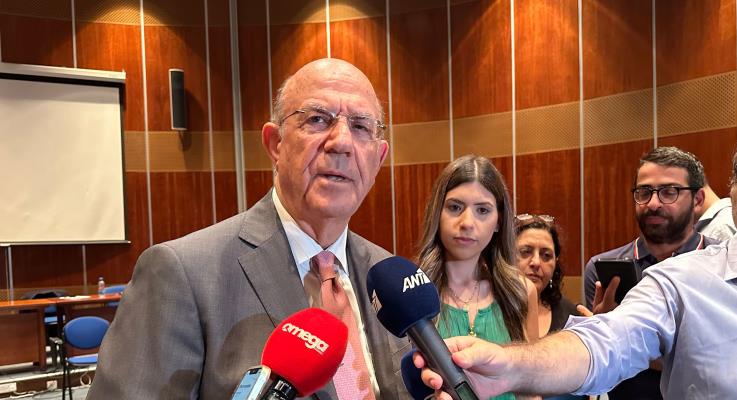The European Commission should ask why the Great Sea Interconnector has not been completed, Finance Minister Makis Keravnos said.
Speaking to newspaper Kathimerini, he made reference for the second time to two “independent and serious organisations” which have “concluded that the project is not sustainable”, before asking questions of the commission.
“The question I ask is why the European Commission, which allocates funds under strict conditions and under specific timetables, is not after so many years asking why this project has not been completed”, he said.
The commission had pledged a total of €657 million of support for the interconnector, designating it a project of common interest, meaning that it is a “key priority” for the enhancement of the EU’s energy and climate goals, and for the enhancement of the security of the bloc’s energy supply.
If completed, the project would connect the energy grids of Cyprus, Greece, and Israel.
However, the project has hit numerous bumps in the road, with the Cypriot government at present withholding a total of €25 million which Greece’s independent transmission system operator (Admie) had requested to aid the financing of the project.
The Republic of Cyprus had pledged a total of €25m per year over five years until 2029, with those payments to be made before the interconnector is operational, in effect helping finance the project and ensuring that Admie will have a stable income while investing in the project before it turns a profit.
However, disagreements have been raised over the means of making those payments, and over the Cypriot side’s view that adequate progress has not yet been made on the project.
The former matter is related to the fact that Cyprus had initially planned to utilise funds made available to it through the European Union’s emissions trading system (ETS) to make the payments, so as to prevent the burden of the payments from falling on the taxpayer.
Admie had warned that this arrangement may violate the EU’s rules on state aid, and as such asked the Cyprus energy regulatory authority (Cera) to begin charging consumers instead.
Keravnos had earlier described this as “a bit of a pseudo-dilemma”, saying that “taxpayers’ money will be paid so that consumers do not have to pay, but all taxpayers are also consumers”, and adding that “I do not know anyone who does not use electricity”.
Then asked what would have to be different for he and his ministry to change stance on the matter and be more forthcoming with the first payment of €25m demanded by Admie, he said his stance would change “if the project were being implemented right now and were at a good stage”.
He added that seabed surveys to determine where cables we laid “have not even been completed”, and that the completion of those surveys is “decisive for the total cost of the project”.
As such, he added, “we are not in a position to know” what the project will cost in total.






Click here to change your cookie preferences